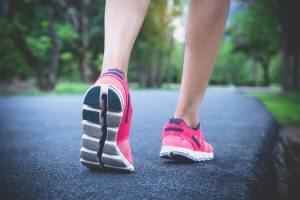If you’ve been looking for something to put an extra spring in your step this might just be it. New research has found that slow walkers are at greater risk of heart related death.
Published in the European Heart Journal, researchers analysed data from nearly half a million participants. They found that middle-aged people who reported to be slow walkers were almost twice as likely to have a heart-related death compared to brisk walkers.
The findings were seen in men and women and could not be further explained by environmental factors such as smoking, BMI or diet.
Researchers also found that slow walking pace was strongly linked to overall physical fitness. “Therefore, self-reported walking pace could be used to identify individuals who have low physical fitness and high mortality risk that would benefit from targeted physical exercise interventions,” Professor Tom Yates said.
Why you should get walking… a little faster There are a number of mental and physical health benefits of taking regular brisk walks. Just 30 minutes of walking per day can:
- Increase your cardiovascular fitness
- Strengthen your bones
- Reduce body fat
- Boost your muscle power and endurance
Other benefits include:
1. Boost heart and lung health
Walking helps pump more blood to your brain and increases your cardiovascular and pulmonary fitness. Walking is a great source of cardio exercise, lowering your LDL (bad) cholesterol while increasing your HDL (good) cholesterol levels.
2. Lowers risk of disease
Regular walking can help decrease your risk of type 2 diabetes by around 60%. Reduce your risk of developing colon, breast or womb cancer by 20%, and lower your risk of a stroke up to 27%.
3. Boosts mood
If you’re not into exercise it may be hard to believe. But, walking can significantly boost your mood through the release of endorphin’s, happy hormones.
Endorphin’s are secreted within the brain and nervous system and release a positive, happy feeling. So even if you begin your workout with groan, you’ll be grinning ear to ear by the end.





